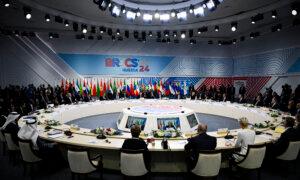President Biden pardoned his son late Sunday after he was convicted on gun charges and pleaded guilty to tax evasion.
With President Joe Biden pardoning his son Hunter on Sunday night, it joins a list of controversial presidential pardons issued throughout the nation’s history
The president said the gun and tax charges that were brought against his son were politicized, while his son offered a statement of his own saying that he was addicted to drugs at the time and has since sobered up. The pardon not only covers the two cases but any potential criminal activity between Jan. 1, 2014, and Dec. 1, 2024.
Ford Pardons Nixon
On Sept. 8, 1974, President Gerald R. Ford fully pardoned his predecessor, President Richard Nixon, for any crimes he may have committed against the United States while he was in office. This pardon came about a month after Nixon resigned as president in August 1974.
The pardon covered Nixon’s activity during the Watergate scandal.
Ford said in a televised statement at the time that pardoning his predecessor was in the best interest of the country.
“It could go on and on and on, or someone must write the end to it. I have concluded that only I can do that, and if I can, I must,” he said, referring to the investigation of Nixon.
Clinton Pardons Marc Rich and Half-Brother
Biden’s move to provide clemency for a family member isn’t without precedent. In 2001, at the very end of his term, President Bill Clinton pardoned Roger Clinton, his half-brother, who was sentenced to about a year in prison after he pleaded guilty to selling cocaine to an undercover officer.
On the same day, Clinton also pardoned commodities trader Marc Rich, who had fled the United States to Switzerland after he was indicted in 1983 on charges of evading millions of dollars in taxes. Rich was also accused of allegedly trading with Iran while the regime was holding American hostages in the late 1970s.
At the time, the Brookings Institute noted, members of Clinton’s own Democratic Party were incensed by the Rich pardon.
Carter Pardons Vietnam Draft Dodgers
President Jimmy Carter is known for several controversial pardons during his single presidential term, including the blanket pardon for those who dodged the draft during the Vietnam War. Carter issued the pardon on his first day in office, on Jan. 20, 1977, making good on a campaign promise to do so.
The move drew significant criticism at the time.
Sen. Barry Goldwater (R-Ariz.), a supporter of the Vietnam War and a one-time presidential candidate, said Carter’s move was the “most disgraceful thing that a president has ever done.”
Andrew Johnson Pardons Confederate President Jefferson Davis
Following the Civil War, President Andrew Johnson issued multiple proclamations pardoning several former Confederate soldiers. On Christmas Day in 1868, Johnson granted pardons and amnesty for treason to “every person who directly or indirectly participated in the late insurrection or rebellion.”
While not technically a pardon, President Carter, more than 100 years later, signed a congressional bill in October 1978 that restored Davis’s citizen rights.
Clinton Pardons Patty Hearst, Susan Rosenberg
In 1979, Carter commuted the sentence of heiress Patty Hearst for allegedly helping rob a bank after she was kidnapped by the Marxist Symbionese Liberation Army terrorist organization. But more than 20 years later, Clinton, on his last day in office in 2001, provided a full pardon for Hearst.
George H.W. Bush Pardons Iran-Contra Convicts
President George H.W. Bush, who served from 1989 to 1993, was criticized for pardoning and commuting the sentences of six individuals convicted in the Iran-Contra scandal that occurred during the administration of President Ronald Reagan when Bush served as vice president.
Among those who received pardons included then-Defense Secretary Caspar Weinberger and then-White House national security adviser Robert McFarlane.
Trump Pardons Advisers, Staff
At the end of his first term, President Donald Trump pardoned his former campaign manager Paul Manafort, adviser Roger Stone, former national security adviser Lt. Gen. Michael Flynn, former adviser Stephen Bannon, and former aide George Papadopoulos.
The moves drew significant backlash in the media and among Democratic lawmakers.
Trump said that the pardons were necessary because Stone and the others faced biased prosecutions, according to a White House statement issued at the time.
Stone had faced “prosecutorial misconduct by Special Counsel [Robert] Mueller’s team” and was “treated very unfairly,” Trump wrote at the time. “He was subjected to a pre-dawn raid of his home, which the media conveniently captured on camera. Mr. Stone also faced potential political bias at his jury trial.”
Original News Source Link – Epoch Times
Running For Office? Conservative Campaign Consulting – Election Day Strategies!


